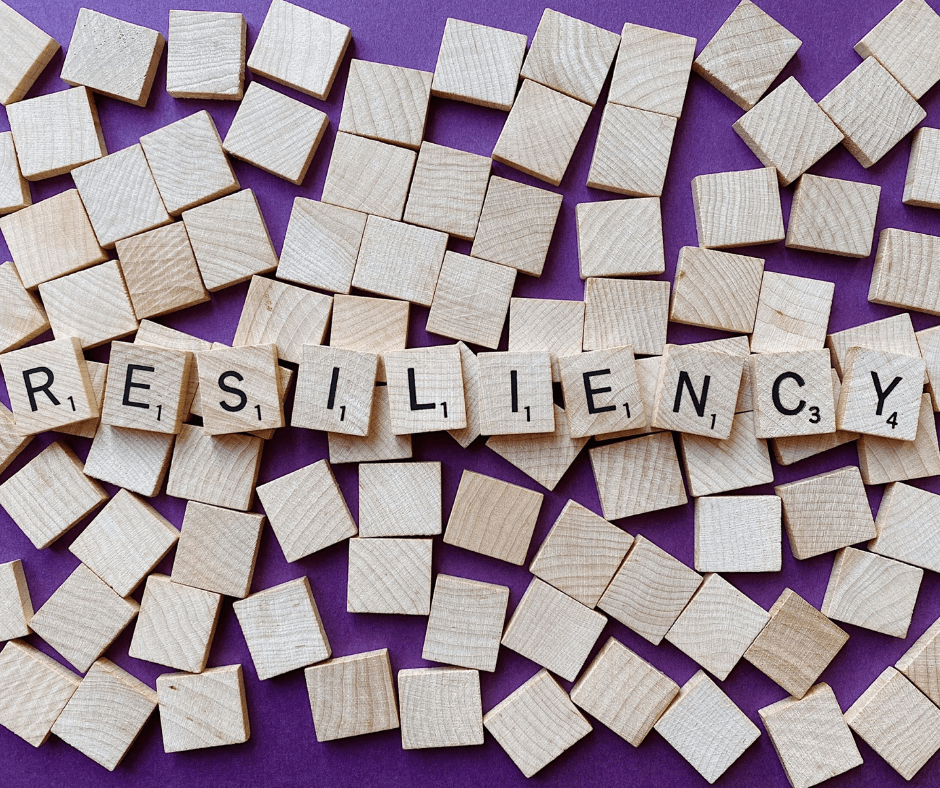|
Personal growth is a lifelong journey, and self-awareness is a vital component that can help you achieve your goals and become the best version of yourself. Self-awareness is the ability to recognize and understand your emotions, thoughts, and behaviors. It enables you to have a better understanding of who you are, what you stand for, and how you relate to others. In this article, we will explore why self-awareness is key to personal growth and how you can develop it. The Importance of Self-Awareness Self-awareness is crucial for personal growth because it provides you with the necessary information to identify your strengths and weaknesses. When you know your strengths, you can leverage them to achieve your goals, while acknowledging your weaknesses helps you work on them and improve. Self-awareness also helps you understand your emotions, which is essential for managing them effectively. When you can regulate your emotions, you can make better decisions, handle stress, and communicate more effectively with others. Another benefit of self-awareness is that it enhances your relationships with others. When you understand your emotions and behavior, you can communicate more effectively with others, which leads to better relationships. You can also recognize when your emotions are affecting your interactions with others and take steps to manage them. Developing Self-Awareness Now that you understand why self-awareness is essential for personal growth let's explore how you can develop it. Here are some ways to cultivate self-awareness:
The Connection to Personal Growth Self-awareness is key to personal growth because it provides you with the necessary information to make changes in your life. When you understand your strengths and weaknesses, you can set goals that align with your values and work towards achieving them. Self-awareness also helps you identify areas for improvement, which is essential for personal growth. Another connection between self-awareness and personal growth is that self-awareness helps you develop emotional intelligence. Emotional intelligence is the ability to recognize and manage your emotions and those of others effectively. It is a critical component of personal growth because it enables you to communicate effectively with others, manage conflict, and build strong relationships. Self-awareness is a vital component of personal growth. It provides you with the necessary information to identify your strengths and weaknesses, understand your emotions, and improve your relationships with others. Developing self-awareness takes time and effort, but it is worth it. By practicing mindfulness, reflecting on your experiences, seeking feedback, journaling, and practicing self-compassion, you can cultivate self-awareness and unlock your potential for personal growth. Remember, self-awareness is a journey,
0 Comments
Imposter Syndrome is a common psychological phenomenon that affects many individuals, regardless of their profession or level of success. It is a feeling of self-doubt, insecurity, and fear of being exposed as a fraud, even though there is no evidence to support this belief. If you have ever felt like you don't deserve your accomplishments or that you are not qualified to do your job, you may be experiencing Imposter Syndrome. In this article, we will explore 10 ways to overcome Imposter Syndrome and achieve greater self-confidence and success. Recognize Your Achievements The first step in overcoming Imposter Syndrome is to recognize your achievements. Take some time to reflect on your past successes and accomplishments. Write them down and celebrate your achievements. This will help you to acknowledge your abilities and boost your self-confidence. Embrace Your Imperfections Nobody is perfect, and that's okay. Embrace your imperfections and see them as opportunities for growth and learning. Recognize that mistakes and failures are a normal part of the learning process and that they do not define your worth or competence. Avoid Comparing Yourself to Others Comparing yourself to others is a sure way to fuel Imposter Syndrome. Remember that everyone has their own unique journey and experiences. Focus on your own progress and growth, rather than comparing yourself to others. Challenge Negative Thoughts Imposter Syndrome is often fueled by negative thoughts and beliefs about oneself. Challenge these thoughts by questioning their validity and replacing them with positive affirmations. For example, instead of thinking "I'm not good enough," replace it with "I am capable and deserving of success." Share Your Feelings with Others Talking about your feelings with a trusted friend, family member, or therapist can help to alleviate Imposter Syndrome. Often, just expressing your thoughts and feelings can help you to gain perspective and recognize that you are not alone in your struggles. Practice Self-Care Self-care is essential for maintaining good mental health and combating Imposter Syndrome. Take care of yourself by getting enough sleep, exercising regularly, eating a healthy diet, and engaging in activities that bring you joy and relaxation. Take Action Despite Fear Fear is a common emotion associated with Imposter Syndrome. However, it is important to take action despite fear. Break down your goals into smaller, manageable steps and take action towards them. This will help to build confidence and overcome feelings of self-doubt. Seek Feedback Feedback from others can be a powerful tool for combating Imposter Syndrome. Ask for feedback from colleagues, mentors, or trusted friends and family members. This will not only help you to recognize your strengths and areas for improvement but also show you that others see your abilities and value your contributions. Focus on Learning and Growth Instead of focusing on being perfect or achieving instant success, focus on learning and growth. Recognize that success takes time and effort and that each step towards your goals is an opportunity for learning and development. Celebrate Your Successes Finally, celebrate your successes, no matter how small they may seem. Acknowledge your hard work and effort and take time to celebrate your achievements. This will help to build confidence and motivation to continue striving towards your goals. Imposter Syndrome is a common experience that affects many individuals. However, there are many strategies that you can use to overcome it and build greater self-confidence and success. By recognizing your achievements, embracing imperfections, avoiding comparisons, challenging negative thoughts, sharing your feelings, practicing self-care, taking action despite fear, seeking feedback, focusing on learning and growth, and celebrating your successes, you can overcome Imposter Syndrome and achieve your goals. Remember, you are capable and deserving of success! Self-care is a term that has become increasingly popular in recent years, and for good reason. It refers to the deliberate actions we take to prioritize and maintain our physical, mental, and emotional well-being. In today's fast-paced world, where we are constantly bombarded with information and distractions, taking care of ourselves has become more important than ever. In this article, we will discuss the importance of self-care for a healthy mindset and how you can incorporate it into your daily routine. What is Self-Care? Self-care is any activity that we do deliberately to take care of our mental, emotional, and physical health. It can include anything from getting enough sleep and exercise to taking a relaxing bath or spending time with loved ones. Self-care is not selfish, but rather it is essential for our overall well-being. The Importance of Self-Care for a Healthy Mindset Self-care is crucial for maintaining a healthy mindset. When we take care of ourselves, we are better able to handle stress and the challenges that come with daily life. When we neglect our self-care, we are more prone to feelings of anxiety, depression, and burnout. Taking care of ourselves also helps us to build resilience. Resilience is the ability to bounce back from difficult situations. When we prioritize self-care, we are better equipped to handle adversity and come out stronger on the other side. Self-care can also improve our relationships. When we are well-rested, emotionally balanced, and physically healthy, we are better able to connect with others and form meaningful relationships. Self-care can also help us to set boundaries and communicate our needs effectively. How to Incorporate Self-Care into Your Daily Routine
Self-care is essential for maintaining a healthy mindset. It helps us to handle stress, build resilience, improve our relationships, and live a more balanced and fulfilling life. Incorporating self-care into your daily routine doesn't have to be complicated or time-consuming. By making small changes to your habits and prioritizing your well-being, you can cultivate a healthy mindset and thrive in all areas of your life. So, take care of yourself, and remember that self-care is not selfish, but rather it is essential. Self-doubt is an experience that almost everyone has faced at some point in their lives. It can be debilitating and affect every aspect of our lives, from our personal relationships to our professional endeavors. It is an insidious feeling that creeps up on us when we least expect it, and it can be challenging to overcome. However, it is not impossible to overcome self-doubt and build confidence. In this article, we will explore ways to overcome self-doubt and build confidence, so you can achieve your goals and live your best life. Understand Self-Doubt: Self-doubt is a natural human emotion that can be helpful in certain situations. It can motivate us to work harder and strive for excellence. However, when it becomes pervasive and begins to affect our everyday lives, it can be a problem. Understanding the root causes of self-doubt can help us overcome it. Self-doubt is often rooted in past experiences, particularly negative ones, and can be perpetuated by negative self-talk. It is essential to recognize when negative self-talk is occurring and take steps to reframe those thoughts positively. Focus on Strengths: One way to overcome self-doubt is to focus on our strengths. When we focus on our strengths, we feel more confident in our abilities, and our self-doubt diminishes. It is essential to acknowledge and celebrate our strengths regularly. Make a list of your strengths and refer to it often. Celebrate your accomplishments and the things you do well. It can be easy to focus on our weaknesses, but focusing on our strengths can help build our confidence and combat self-doubt. Set Realistic Goals: Setting realistic goals is another way to overcome self-doubt and build confidence. When we set goals that are achievable, we are more likely to succeed. This success can help build our confidence and combat self-doubt. It is essential to break down our goals into manageable steps so that we can make progress towards them. Celebrate small successes along the way, and keep track of your progress. When we see that we are making progress towards our goals, we feel more confident in our abilities. Practice Self-Care: Self-care is critical in combating self-doubt and building confidence. When we take care of ourselves, we feel better both physically and mentally. Taking care of ourselves can include getting enough sleep, eating well, exercising regularly, and doing things we enjoy. It is also essential to set boundaries and say no when necessary. When we practice self-care, we are better equipped to handle the challenges that life throws our way, and we feel more confident in our abilities. Surround Yourself with Positive People: Surrounding ourselves with positive people can help combat self-doubt and build confidence. Positive people lift us up, support us, and help us see the best in ourselves. It is essential to surround ourselves with people who encourage and inspire us. These people can be friends, family members, or even colleagues. Avoid people who bring you down or make you feel bad about yourself. When we surround ourselves with positive people, we feel more confident and capable. Self-doubt is a challenging emotion to overcome, but it is not impossible. By understanding self-doubt, focusing on our strengths, setting realistic goals, practicing self-care, and surrounding ourselves with positive people, we can overcome self-doubt and build confidence. Building confidence takes time and effort, but the rewards are worth it. When we are confident in ourselves and our abilities, we can achieve our goals and live our best lives. So, take the time to invest in yourself and your confidence, and watch as your life transforms for the better. In our daily lives, we are faced with challenges and obstacles that often test our limits. These challenges can be personal, professional, or a combination of both. While some people may crumble under the pressure, others find a way to persevere and ultimately achieve success. What sets these individuals apart is their resilience – the ability to bounce back from setbacks, learn from failures, and continue moving forward. Resilience is a critical trait that can be developed and strengthened over time. It is not a fixed characteristic but rather a mindset and a set of behaviors that can be learned and practiced. In this article, we will explore why resilience is the key to success and examine lessons from successful people who have demonstrated remarkable resilience in their own lives. Lesson 1: Failure is not the end The first lesson we can learn from successful people is that failure is not the end. In fact, failure is often a necessary step on the path to success. J.K. Rowling, the author of the Harry Potter series, was rejected by numerous publishers before finally finding a publisher who believed in her work. Walt Disney was fired from a newspaper job for "not being creative enough" before going on to create one of the most successful entertainment companies in the world. These individuals did not give up after facing rejection and failure. Instead, they used these experiences to fuel their determination and work even harder towards their goals. Lesson 2: Embrace change Another important lesson is to embrace change. The world is constantly evolving, and successful people recognize the importance of adapting to new circumstances. Oprah Winfrey, for example, began her career as a news anchor but pivoted to talk show hosting when she realized her true passion. Jeff Bezos, the founder of Amazon, started the company as an online bookstore but quickly expanded into other areas as the company grew. These individuals did not fear change but instead embraced it and used it as an opportunity to grow and innovate. Lesson 3: Perseverance pays off Perseverance is another critical element of resilience. Successful people understand that achieving their goals often requires sustained effort over time. Michael Jordan, one of the greatest basketball players of all time, was famously cut from his high school basketball team. Despite this setback, he continued to practice and improve his skills until he eventually became a star player. Similarly, Thomas Edison famously failed hundreds of times before finally inventing the lightbulb. These individuals did not give up when faced with challenges but instead persisted in their efforts until they achieved success. Lesson 4: Focus on the positive Finally, successful people tend to focus on the positive. They understand that setbacks and failures are part of the journey but choose to view them as opportunities for growth and learning. Sheryl Sandberg, the COO of Facebook, lost her husband suddenly in 2015. Instead of letting this tragedy defeat her, she used it as an opportunity to reflect on the importance of resilience and to help others who were going through difficult times. By focusing on the positive, successful people are able to maintain a sense of hope and optimism even in the face of adversity. Resilience is a critical trait that is essential for achieving success in life. It allows individuals to bounce back from setbacks, adapt to new circumstances, persevere in the face of challenges, and maintain a positive mindset. By learning from the examples of successful people who have demonstrated remarkable resilience in their own lives, we can develop and strengthen our own resilience and achieve our goals. So the next time you face a setback or obstacle, remember that failure is not the end, change can be an opportunity, perseverance pays off, and focusing on the positive can make all the difference. We all experience negative thoughts from time to time. These thoughts can be about ourselves, our abilities, our past, our future, or anything in between. Negative thoughts can take a toll on our mental health and affect our overall well-being. It's important to learn how to overcome negative thinking and cultivate a positive mindset. Here are five strategies that can help you do just that.
Practice Gratitude Gratitude is a powerful tool for overcoming negative thinking. When we focus on the things we're grateful for, we shift our attention away from the negative aspects of our lives. It's easy to get caught up in negative thoughts and feelings, but taking the time to appreciate the good things in our lives can help us stay positive and motivated. To practice gratitude, try making a list of things you're grateful for each day. This can be as simple as a good cup of coffee, a kind word from a friend, or a beautiful sunset. Focusing on these positive experiences can help you cultivate a more positive mindset. Reframe Negative Thoughts Negative thoughts can be overwhelming, but they don't have to control our lives. One strategy for overcoming negative thinking is to reframe our thoughts. Instead of focusing on the negative aspects of a situation, try to find the positives. For example, if you're feeling down about a job interview that didn't go well, try reframing your thoughts by focusing on what you learned from the experience. Maybe you realized that you need to brush up on your interview skills or that you're interested in pursuing a different career path. By focusing on the positives, you can turn a negative experience into a learning opportunity. Practice Mindfulness Mindfulness is the practice of being present in the moment and non-judgmentally observing your thoughts and feelings. By practicing mindfulness, you can learn to identify negative thoughts and feelings as they arise and let them go. One way to practice mindfulness is to set aside time each day for meditation. This can be as little as five minutes a day. Sit quietly, focus on your breath, and observe your thoughts without judgment. Over time, you'll become more aware of your thoughts and feelings, and you'll be better able to let go of negative thoughts. Surround Yourself with Positive People The people we surround ourselves with can have a big impact on our mental health and well-being. If you're constantly surrounded by negative people, it can be difficult to maintain a positive mindset. On the other hand, if you surround yourself with positive, supportive people, you're more likely to feel positive and motivated. Take a look at the people in your life and consider whether they're contributing positively or negatively to your mental health. If you have negative people in your life, try to limit your time with them and seek out positive influences instead. Practice Self-Care Self-care is essential for maintaining a positive mindset. When we take care of ourselves physically and emotionally, we're better able to handle negative thoughts and feelings. Self-care can take many forms, from getting enough sleep and exercise to practicing mindfulness and spending time with loved ones. Make self-care a priority in your life by scheduling time for activities that make you feel good. This might mean taking a bubble bath, going for a walk in nature, or reading a book. Whatever self-care looks like for you, make sure you prioritize it in your life. Negative thinking can take a toll on our mental health and well-being, but it doesn't have to control our lives. By practicing gratitude, reframing negative thoughts, practicing mindfulness, surrounding ourselves with positive people, and practicing self-care, we can overcome negative thinking and cultivate a more positive mindset. Every day, we have thousands of thoughts that run through our minds, both positive and negative. Sometimes, it’s easy to get caught up in negative thinking patterns, which can lead to feelings of stress, anxiety, and self-doubt. Positive affirmations can be a powerful tool to combat these negative thoughts and replace them with more positive ones. In this article, we’ll explore the power of positive affirmations and how to use them to improve your mental wellbeing and overall happiness. The Power of Positive Affirmations: Positive affirmations are short, positive statements that you repeat to yourself to help shift your mindset from negative to positive. These statements are designed to help you focus on your strengths and abilities, rather than on your weaknesses and limitations. By repeating positive affirmations regularly, you can start to rewire your brain and cultivate a more positive outlook on life. Research has shown that positive affirmations can be a powerful tool for reducing stress, anxiety, and depression. One study found that participants who repeated positive affirmations for just five minutes a day experienced a significant reduction in their levels of cortisol, a hormone that is associated with stress. Another study found that using positive affirmations helped to reduce symptoms of depression in patients with major depressive disorder. Using Positive Affirmations: Now that we’ve established the benefits of positive affirmations, let’s explore how to use them effectively. Here are some tips for creating and using positive affirmations:
Examples of Positive Affirmations: Here are some examples of positive affirmations you can use to help shift your mindset:
Positive affirmations can be a powerful tool for improving your mental wellbeing and overall happiness. By shifting your mindset from negative to positive, you can cultivate a more optimistic outlook on life and reduce feelings of stress and anxiety. Remember to keep your affirmations short, simple, and positive, and repeat them regularly to make them part of your daily routine. With a little practice, positive affirmations can help you achieve your goals and lead a more fulfilling life. Success and failure are two sides of the same coin, and every entrepreneur's journey is marked with both. While success is often celebrated and rewarded, failure is often frowned upon and shunned. However, the truth is that failure is an essential part of success, and every successful entrepreneur has had their fair share of failures. In this article, we will explore why failure is necessary for success and learn valuable lessons from some of the world's top entrepreneurs. Failure Breeds Resilience and Perseverance Every entrepreneur faces obstacles and challenges on their journey to success, and failure is one of the biggest. However, those who learn from their failures and use them as a stepping stone to success develop resilience and perseverance. They understand that failure is not a permanent setback but a temporary one that can be overcome with determination and hard work. This resilience and perseverance are crucial to success because it allows entrepreneurs to push through difficult times and come out stronger on the other side. One of the best examples of resilience and perseverance is the story of Thomas Edison, the inventor of the light bulb. Edison failed more than a thousand times before he finally succeeded in inventing a working light bulb. When asked about his failures, Edison famously said, "I have not failed. I've just found 10,000 ways that won't work." Edison's persistence and determination are what ultimately led to his success. Failure Promotes Learning and Growth Failure is not just a setback but also an opportunity to learn and grow. When entrepreneurs fail, they have the chance to analyze what went wrong and identify areas for improvement. They can use their failures as a learning experience and gain valuable insights into what works and what doesn't. This knowledge can then be applied to future endeavors, increasing the chances of success. Sara Blakely, the founder of Spanx, is a great example of someone who used failure as a learning experience. When she first started her company, she faced numerous rejections and setbacks. However, she used these failures to refine her product and business strategy, eventually leading to the massive success of Spanx. Blakely has said, "Failure for me became not trying versus not succeeding." Failure Fosters Innovation and Creativity Entrepreneurs who are not afraid to fail are often the most innovative and creative. Failure encourages entrepreneurs to think outside the box and come up with new and innovative solutions to problems. When entrepreneurs embrace failure, they are more likely to take risks and experiment with new ideas, ultimately leading to more significant breakthroughs and innovations. Elon Musk, the CEO of SpaceX and Tesla, is a great example of an entrepreneur who embraces failure and fosters innovation. Musk's companies have experienced numerous setbacks and failures over the years, but he has never been deterred. Instead, he has used these failures as opportunities to improve and innovate, leading to groundbreaking achievements in space travel and renewable energy. Failure is an essential part of success, and every successful entrepreneur has experienced their fair share of setbacks and failures. However, it is essential to remember that failure is not a permanent setback but an opportunity for learning, growth, and innovation. The most successful entrepreneurs are those who embrace failure, learn from it, and use it as a stepping stone to success. As Sara Blakely has said, "Don't be intimidated by what you don't know. That can be your greatest strength and ensure that you do things differently from everyone else." So embrace failure, learn from it, and use it to achieve greatness. Success is a subjective term, but it is safe to say that most of us want to be successful in our lives. However, achieving success is not an easy feat; it requires a lot of hard work, dedication, and discipline. Successful people are not born that way; they develop certain habits and traits that help them to achieve their goals. In this article, we will discuss ten habits of highly successful people that you can adopt to achieve success in your own life.
Goal Setting Highly successful people set clear and specific goals for themselves. They have a clear vision of what they want to achieve and work towards it. They break down their goals into smaller, manageable tasks and track their progress regularly. Setting goals helps them to stay focused and motivated. Positive Thinking Positive thinking is a crucial trait of highly successful people. They believe that they can achieve their goals and focus on the possibilities rather than the obstacles. They have a growth mindset and view failures as opportunities to learn and grow. Time Management Time is a valuable resource, and highly successful people know how to manage it effectively. They prioritize their tasks and focus on the most important ones. They use tools like calendars and to-do lists to stay organized and productive. Continuous Learning Successful people never stop learning. They read books, attend seminars, and seek out new experiences to expand their knowledge and skills. They are always looking for ways to improve themselves and their work. Networking Networking is crucial for success in any field. Highly successful people build strong relationships with others in their industry and beyond. They attend events, join professional organizations, and use social media to connect with others. They understand the power of collaboration and seek out opportunities to work with others. Persistence Success is not achieved overnight. Highly successful people understand that it takes time and effort to achieve their goals. They are persistent and resilient in the face of setbacks and failures. They learn from their mistakes and use them as stepping stones to success. Focus Highly successful people have the ability to focus on the task at hand. They eliminate distractions and work towards their goals with laser-like focus. They know that multitasking is not productive and instead focus on one task at a time. Health and Wellness Successful people understand the importance of taking care of their physical and mental health. They prioritize exercise, healthy eating, and getting enough sleep. They also take time for self-care activities like meditation, yoga, and reading. Gratitude Gratitude is an important trait of highly successful people. They appreciate what they have and focus on the positive aspects of their lives. They express gratitude to others and take time to reflect on their accomplishments. Risk-taking Highly successful people are not afraid to take risks. They understand that success often requires stepping outside of their comfort zone and taking calculated risks. They weigh the pros and cons and take action even in the face of uncertainty. Success is not a destination, but a journey. Adopting these ten habits of highly successful people can help you to achieve your goals and live a fulfilling life. Remember, success is not achieved overnight, but through consistent effort and dedication. Start small, be persistent, and believe in yourself. With hard work and the right habits, you can achieve anything you set your mind to. Procrastination is a common issue that affects almost everyone at some point in their lives. It can be challenging to overcome, and it can lead to a significant loss of productivity. However, it's possible to overcome procrastination and boost productivity with the right approach. In this article, we'll discuss how to overcome procrastination and improve productivity in your personal and professional life.
Recognize Your Procrastination Triggers: The first step in overcoming procrastination is to recognize the triggers that lead you to procrastinate. It's essential to identify the situations, people, or things that make you feel like procrastinating. Once you have identified these triggers, you can begin to take steps to avoid or mitigate them. For example, if you tend to procrastinate when faced with a challenging task, you could break the task down into smaller, more manageable parts. This approach will make the task less overwhelming and more achievable, reducing the likelihood of procrastination. Set Realistic Goals: Setting realistic goals is essential in overcoming procrastination and boosting productivity. If your goals are unrealistic, you may become overwhelmed and feel like giving up before you even start. Instead, set achievable goals that you can accomplish in a reasonable amount of time. For example, if you have a large project to complete, break it down into smaller, more manageable tasks. Set deadlines for each task and track your progress. Celebrate your accomplishments as you reach each milestone, which will give you the motivation to keep going. Create a Schedule: Creating a schedule is an effective way to overcome procrastination and increase productivity. When you have a set schedule, you know what tasks you need to complete and when they need to be done. This approach eliminates the need to make decisions about what to do next, reducing the likelihood of procrastination. For example, you could create a daily or weekly schedule that outlines your tasks for each day. Be sure to include breaks and time for self-care to avoid burnout. Stick to your schedule as closely as possible, but be flexible enough to adjust it if necessary. Eliminate Distractions: Distractions are a significant cause of procrastination. To overcome procrastination, you must eliminate or reduce distractions as much as possible. This approach will help you stay focused and productive. For example, if you find yourself checking social media or email frequently, try turning off notifications or setting specific times to check them. Alternatively, you could use apps or browser extensions that block distracting websites or apps during specific times of the day. Practice Mindfulness: Practicing mindfulness can help you overcome procrastination and improve productivity. Mindfulness involves being present and fully engaged in the current moment, without judgment. When you're mindful, you're less likely to get distracted by negative thoughts or emotions that can lead to procrastination. For example, you could practice mindfulness by taking a few deep breaths before starting a task. Focus on the task at hand, and avoid multitasking. If you find your mind wandering, gently bring your attention back to the task. Procrastination can be a challenging habit to break, but it's essential for improving productivity in your personal and professional life. By recognizing your procrastination triggers, setting realistic goals, creating a schedule, eliminating distractions, and practicing mindfulness, you can overcome procrastination and boost productivity. Remember, overcoming procrastination is a process, so be patient and kind to yourself as you work to develop new habits. As humans, we all have that inner voice in our heads that speaks to us. It can be our biggest supporter, or our worst enemy. The way we talk to ourselves can have a significant impact on our mood, behavior, and ultimately, our confidence. It is called self-talk, and we all engage in it regularly, whether we realize it or not. The good news is, we have the power to control our self-talk and use it to our advantage. In this article, we will discuss the power of positive self-talk and how to use it to boost your confidence.
What is Self-Talk? Self-talk refers to the ongoing internal dialogue we have with ourselves. It can be positive or negative and can affect our thoughts, emotions, and actions. The way we talk to ourselves can impact how we feel about ourselves and our abilities. Negative self-talk can lead to low self-esteem, anxiety, and depression, while positive self-talk can help us feel more confident, motivated, and resilient. The Power of Positive Self-Talk Positive self-talk is a powerful tool that can help us cope with challenges, overcome obstacles, and boost our confidence. It can help us see things in a more positive light, which can increase our motivation and resilience. Research has shown that people who engage in positive self-talk are more likely to succeed in achieving their goals and have better mental health. How to Use Positive Self-Talk to Boost Your Confidence
The first step in using positive self-talk to boost your confidence is to recognize your negative self-talk. Pay attention to the thoughts that run through your mind and identify any negative or self-limiting beliefs. Once you recognize your negative self-talk, you can challenge those thoughts and replace them with positive ones.
The next step is to challenge your negative self-talk. Ask yourself if your thoughts are accurate, rational, and helpful. Often, our negative self-talk is based on irrational or unfounded beliefs. Challenging these thoughts can help you see them in a more realistic and positive light.
Once you have challenged your negative self-talk, it is time to replace it with positive self-talk. Choose positive affirmations or statements that counteract your negative beliefs. For example, if you think, "I'm not good enough," replace it with, "I am capable and deserving of success." Repeat these positive statements to yourself regularly, and over time, they will become your new reality.
Visualization is a powerful tool that can help you boost your confidence and achieve your goals. Visualize yourself succeeding in a specific task or achieving a specific goal. Imagine yourself feeling confident, proud, and accomplished. Visualization can help you believe in yourself and your abilities, which can boost your confidence and motivation.
Finally, it is essential to practice self-compassion. Treat yourself with kindness, understanding, and empathy. Remember that no one is perfect, and we all make mistakes. Be gentle with yourself when things don't go as planned, and remind yourself that you are doing the best you can. Practicing self-compassion can help you feel more confident and resilient, even in the face of challenges and setbacks. Positive self-talk is a powerful tool that can help us boost our confidence, motivation, and resilience. By recognizing our negative self-talk, challenging it, and replacing it with positive affirmations, we can change the way we think and feel about ourselves. Visualization and self-compassion can also be effective techniques for building confidence and resilience. Relationships are an integral part of human life. Whether it's a romantic partner, family, friends, or colleagues, we all have some relationships that are important to us. And with any relationship, there are bound to be challenges and conflicts that arise. However, cultivating a daily meditation practice can help foster compassion, empathy, and loving-kindness, leading to better relationships with those around us.
What is Loving-Kindness? Loving-kindness, or metta in Pali, is a type of meditation that originated in Buddhism. It's a practice that involves sending positive energy and well-wishes to yourself and others. It's a practice that can help cultivate compassion and empathy, leading to better relationships with others. Why Practice Loving-Kindness? When we practice loving-kindness, we are intentionally cultivating positive feelings towards ourselves and others. This practice can help shift our perspective from a negative one to a more positive one, allowing us to see the good in ourselves and others. Additionally, loving-kindness can help reduce stress and anxiety, leading to better mental health and emotional well-being. How to Practice Loving-Kindness Meditation:
Tips for Practicing Loving-Kindness Meditation:
Cultivating loving-kindness through meditation can have a profound impact on our relationships with others. By intentionally sending positive energy and well-wishes to ourselves and those around us, we can foster compassion, empathy, and understanding. With regular practice, loving-kindness can become a powerful tool in creating and maintaining healthy and meaningful relationships. Getting a good night's sleep is essential for a healthy body and mind. However, with our busy lives and daily stresses, it can be challenging to achieve the deep restorative sleep that our bodies need. One way to improve the quality of our sleep is through meditation. Meditation is a technique that has been used for centuries to calm the mind, reduce stress, and improve sleep. In this article, we will explore how meditation can help you achieve restful nights and provide some tips on how to incorporate meditation into your bedtime routine. The Benefits of Meditation for Sleep Meditation can help improve the quality of your sleep by reducing stress and anxiety. Stress and anxiety can cause a range of problems that interfere with sleep, such as racing thoughts, muscle tension, and increased heart rate. By practicing meditation, you can train your mind to focus on the present moment and reduce feelings of stress and anxiety. This, in turn, can help you fall asleep faster and stay asleep longer. Meditation can also improve the overall quality of your sleep. Studies have shown that regular meditation can increase the amount of deep sleep that you get, which is the most restorative stage of sleep. Deep sleep is important for repairing and rejuvenating the body, boosting the immune system, and improving cognitive function. Tips for Incorporating Meditation into Your Bedtime Routine
Meditation is a simple yet effective way to improve the quality of your sleep. By reducing stress and anxiety, meditation can help you fall asleep faster and stay asleep longer. By incorporating meditation into your bedtime routine, you can train your mind to focus on the present moment and relax, leading to a more restful and rejuvenating night's sleep. Remember to find a quiet and comfortable space, set aside time each day, practice deep breathing, use a guided meditation app, and experiment with different types of meditation. With practice, meditation can become a valuable tool for achieving restful nights and a healthier body and mind.
In today's fast-paced world, stress has become an inevitable part of our lives. We all go through stressful situations at work, home, or even while traveling. Chronic stress can have a severe impact on our physical and mental health. It can lead to insomnia, anxiety, depression, high blood pressure, and many other health problems. Therefore, it's crucial to find ways to manage stress effectively.
Essential oils have been used for centuries to promote relaxation and reduce stress. These oils are extracted from plants and contain aromatic compounds that can have a calming effect on our mind and body. Here are five essential oils that can help you relieve stress and promote relaxation: Lavender Oil Lavender oil is one of the most popular essential oils for stress relief. It has a calming and soothing effect on the nervous system, which can help reduce anxiety and promote relaxation. Studies have shown that inhaling lavender oil can lower the levels of the stress hormone cortisol in the body, leading to reduced stress and improved mood. You can use lavender oil by adding a few drops to your bathwater or diffusing it in your room. You can also mix it with a carrier oil like coconut oil and massage it onto your temples or neck. Bergamot Oil Bergamot oil is another essential oil that can help you manage stress and anxiety. It has a citrusy and uplifting aroma that can improve your mood and promote relaxation. Bergamot oil contains a compound called linalool, which has been shown to have a calming effect on the nervous system. You can use bergamot oil by diffusing it in your room or adding a few drops to your bathwater. You can also mix it with a carrier oil and apply it to your skin. Chamomile Oil Chamomile oil is known for its calming and sedative properties. It can help reduce anxiety, promote relaxation, and improve sleep quality. Chamomile oil contains a compound called apigenin, which has been shown to have a calming effect on the brain. You can use chamomile oil by adding a few drops to your bathwater or diffusing it in your room. You can also mix it with a carrier oil and massage it onto your skin. Frankincense Oil Frankincense oil is another essential oil that can help you manage stress and anxiety. It has a woody and earthy aroma that can promote relaxation and improve your mood. Frankincense oil contains a compound called alpha-pinene, which has been shown to have a calming effect on the nervous system. You can use frankincense oil by diffusing it in your room or adding a few drops to your bathwater. You can also mix it with a carrier oil and apply it to your skin. Ylang Ylang Oil Ylang ylang oil is a sweet-smelling essential oil that can help reduce stress and anxiety. It has a calming effect on the nervous system and can promote relaxation. Ylang ylang oil contains a compound called linalool, which has been shown to have a sedative effect on the brain. You can use ylang ylang oil by adding a few drops to your bathwater or diffusing it in your room. You can also mix it with a carrier oil and apply it to your skin. Essential oils can be an effective way to manage stress and promote relaxation. Lavender oil, bergamot oil, chamomile oil, frankincense oil, and ylang ylang oil are five essential oils that can help you relieve stress and anxiety. However, it's important to remember that essential oils should not be used as a substitute for professional medical advice. In today's fast-paced world, it's easy to get caught up in the hustle and bustle of everyday life. With work, family, and social obligations, it can feel like there's never enough time in the day to get everything done. This can lead to stress and anxiety, which can have negative impacts on both our physical and mental health. Fortunately, there's a simple practice that can help alleviate these feelings and improve our overall well-being: meditation. What is meditation? Meditation is a mental practice that involves training the mind to focus and be present in the moment. It's been around for thousands of years and has been used by many cultures and religions as a way to achieve inner peace and enlightenment. There are many different forms of meditation, but they all involve some form of mindfulness and breath control. How does meditation reduce stress and anxiety? Stress and anxiety are both natural responses to perceived threats or challenges. When we feel stressed or anxious, our bodies release hormones such as cortisol and adrenaline, which can have negative impacts on our physical and mental health if left unchecked. Meditation can help reduce stress and anxiety by calming the mind and body, which can lower cortisol levels and promote feelings of relaxation. One of the main ways that meditation can reduce stress and anxiety is by promoting mindfulness. Mindfulness is the practice of being aware of our thoughts, feelings, and bodily sensations in the present moment without judgment. By focusing on the present moment, we can let go of worries about the past or future, which can help reduce stress and anxiety. Meditation can also help reduce stress and anxiety by promoting relaxation. When we meditate, our bodies enter a state of deep relaxation, which can help lower blood pressure, reduce muscle tension, and slow down our breathing. This can help promote feelings of calm and relaxation, which can counteract the effects of stress and anxiety. How to meditate
Meditation is a simple practice that can be done anywhere, anytime. Here's a basic guide to get started:
Tips for success Meditation can be challenging at first, but with practice, it can become easier and more enjoyable. Here are some tips to help you succeed:
Meditation is a simple and effective way to reduce stress and anxiety and promote overall well-being. By focusing on the present moment and promoting relaxation, meditation can help counteract the negative effects of stress and anxiety on both our physical and mental health. With practice and patience, anyone can learn to meditate and experience the benefits it has to offer. So why not give it a try and see how meditation can improve your life? Learn how to break free from scarcity mindset and achieve abundance with these 10 proven strategies. Discover how changing your mindset can transform your life. Scarcity mindset is a belief that there is never enough, leading to fear, anxiety, and lack of fulfillment. This mindset can be detrimental to our mental health and limit our ability to achieve success. In contrast, an abundance mindset is the belief that there is always enough, leading to confidence, creativity, and opportunities. In this blog post, we will discuss 10 proven strategies to overcome scarcity mindset and embrace abundance. Identify Your Scarcity Mindset TriggersTo overcome scarcity mindset, it's important to identify the triggers that lead to scarcity thinking. This can be done by paying attention to your thoughts and emotions when you experience scarcity. Once you've identified your triggers, you can start working on changing your responses to them. Practice GratitudePracticing gratitude is a powerful way to shift from scarcity to abundance. Focus on what you have instead of what you lack. Start a gratitude journal or take a few minutes each day to reflect on what you're grateful for. Focus on AbundanceShift your focus from scarcity to abundance. Instead of dwelling on what you don't have, focus on what you do have and what you can create. This mindset shift can open up new opportunities and possibilities. Challenge Scarcity ThoughtsChallenge scarcity thoughts by asking yourself if they are based on facts or assumptions. Replace negative self-talk with positive affirmations and self-talk that reinforces abundance. Embrace Abundance MentorsSurround yourself with people who have an abundance mindset. Learn from them and adopt their habits and perspectives. This can help you shift your own mindset from scarcity to abundance. Take Calculated Risks
Taking calculated risks can lead to new opportunities and experiences. Don't let the fear of scarcity hold you back from taking risks that could lead to abundance. Practice Generosity Practice generosity by giving to others. This can be in the form of time, money, or resources. Giving can help you shift from a scarcity mindset to an abundance mindset. Visualize Abundance Visualize abundance by imagining a life of abundance. Use visualization techniques to create a mental picture of what abundance looks like for you. Celebrate Successes Celebrate your successes, no matter how small. This can help reinforce an abundance mindset and motivate you to achieve more. Practice Self-Care Practicing self-care is essential for mental and emotional health. Take care of yourself physically, emotionally, and mentally. This can help you maintain an abundance mindset and overcome scarcity thinking. Overcoming scarcity mindset is possible with the right strategies and mindset shift. By identifying triggers, practicing gratitude, challenging scarcity thoughts, embracing abundance mentors, taking calculated risks, practicing generosity, visualizing abundance, celebrating successes, and practicing self-care, you can shift from scarcity to abundance. Start today and transform your life. Learn how to make a mindset shift and transform your life with these actionable tips. Discover the best keywords and strategies to improve your mindset and achieve success.
Do you feel stuck in your life or career? Are you struggling to achieve your goals and reach your full potential? If so, you might need to make a mindset shift. Your mindset is a powerful tool that can shape your thoughts, actions, and outcomes. By changing your mindset, you can transform your life and achieve success. In this blog post, we'll explore the concept of mindset shift and share some practical tips and strategies to help you make a positive change in your life. Whether you're looking to improve your personal or professional life, these mindset strategies can help you overcome obstacles and achieve your goals. Understand the power of mindset: Before you can make a mindset shift, you need to understand the power of mindset. Your mindset is the lens through which you view the world and interpret your experiences. It can either limit or expand your potential, depending on how you use it. By adopting a positive and growth-oriented mindset, you can overcome challenges, learn from failures, and achieve success. Cultivate a positive mindset: One of the most important mindset shifts you can make is to cultivate a positive mindset. This means focusing on the good in your life, practicing gratitude, and reframing negative thoughts into positive ones. By adopting a positive mindset, you can improve your mood, reduce stress, and attract more positivity into your life. Embrace a growth mindset: Another powerful mindset shift is to embrace a growth mindset. This means believing that you can develop your skills and abilities through hard work and perseverance. By adopting a growth mindset, you can overcome self-doubt, learn from feedback, and achieve your goals. Practice self-improvement: Making a mindset shift also requires taking action to improve yourself. This can include setting goals, learning new skills, and seeking feedback from others. By committing to self-improvement, you can develop your strengths, overcome your weaknesses, and achieve your full potential. Surround yourself with positive influences: Finally, it's important to surround yourself with positive influences. This can include supportive friends and family, inspiring mentors, and uplifting content. By surrounding yourself with positivity, you can stay motivated, inspired, and focused on your goals. Making a mindset shift is not always easy, but it can be the key to transforming your life and achieving success. By understanding the power of mindset, cultivating a positive and growth-oriented mindset, practicing self-improvement, and surrounding yourself with positive influences, you can make a positive change in your life. Start by adopting these mindset strategies today, and see the difference they can make. Sources:
Discover 8 proven resilience building techniques to overcome challenges and bounce back stronger than ever. Learn how to boost your mental toughness and improve your overall well-being. When life throws challenges your way, it can be tough to stay positive and keep pushing forward. But with the right mindset and tools, you can build resilience and overcome any obstacle. In this post, we'll share 8 resilience building techniques to help you bounce back stronger than ever. Practice Gratitude: When you focus on what you're grateful for, you shift your mindset from one of lack to one of abundance. This can help you stay positive and motivated during tough times. Start each day by writing down 3 things you're grateful for, and watch your resilience grow. Develop a Growth Mindset: A growth mindset is the belief that you can always learn and improve, even in the face of adversity. Embrace challenges as opportunities to learn and grow, and you'll become more resilient over time. Build a Support Network: Having a strong support network can help you get through tough times. Reach out to friends, family, or a therapist for emotional support and guidance. Practice Self-Care: Self-care is essential for maintaining your physical and mental health. Make time for activities that you enjoy, such as exercise, reading, or spending time in nature. Set Realistic Goals:
Setting goals can help you stay focused and motivated, but it's important to set goals that are realistic and achievable. Break down larger goals into smaller, manageable steps, and celebrate each milestone along the way. Cultivate Resilient Thinking:Resilient thinking involves reframing negative thoughts and focusing on solutions rather than problems. When faced with a challenge, ask yourself, "What can I learn from this?" or "How can I overcome this?" Practice Mindfulness:Mindfulness involves being present in the moment and non-judgmentally observing your thoughts and feelings. It can help you reduce stress and build resilience over time. Try practicing mindfulness through meditation or other mindfulness exercises. Embrace Failure:Failure is a natural part of the learning process, and it's essential for building resilience. Instead of viewing failure as a setback, see it as an opportunity to learn and grow. Building resilience takes time and effort, but it's worth it. By practicing these 8 techniques, you can strengthen your mental toughness, overcome challenges, and lead a more fulfilling life. Sources:
Learn how to cultivate an abundance mindset with these 10 practical tips. Discover the power of positive thinking and attract abundance into your life. Are you tired of living life feeling like there's never enough? Do you constantly worry about money, relationships, and success? If so, it's time to shift your mindset and embrace an abundance mentality. An abundance mindset is all about focusing on what you have, rather than what you lack. It's about recognizing the limitless opportunities and possibilities in life, and believing that you deserve to have abundance in all areas of your life. In this post, we'll explore 10 simple ways to develop an abundance mindset and live a more fulfilling life. Practice Gratitude: Gratitude is the foundation of an abundance mindset. When you focus on what you're grateful for, you attract more of those things into your life. Take a few minutes each day to reflect on what you're grateful for, and write them down in a gratitude journal. Visualize Your Goals: Visualization is a powerful tool for manifesting abundance. Take some time each day to visualize your goals as if they've already been achieved. This will help you stay focused and motivated, and attract abundance into your life. Use Affirmations: Affirmations are positive statements that can help shift your mindset and beliefs. Use affirmations to reinforce your abundance mentality, such as "I am deserving of abundance in all areas of my life" or "I attract abundance effortlessly." Practice Self-Talk: Your internal dialogue can have a powerful impact on your mindset. Practice positive self-talk by using affirming and empowering language, and avoiding negative self-talk and self-criticism. Focus on Abundance: Instead of focusing on lack and scarcity, shift your focus to abundance. Look for opportunities and possibilities in every situation, and focus on what you have rather than what you don't have. Surround Yourself with Abundance: Surround yourself with people and things that reflect abundance. Spend time with positive and supportive people, and fill your environment with abundance symbols, such as plants, crystals, and artwork.
Embrace Change: Change is inevitable, but it can also be an opportunity for growth and abundance. Embrace change and see it as a chance to learn and evolve, rather than something to fear. Take Action: Abundance requires action. Take action towards your goals, even if they seem small or insignificant. Every step you take towards abundance will bring you closer to your desired outcome. Let Go of Fear: Fear is one of the biggest obstacles to an abundance mindset. Let go of fear and trust in the universe to provide for you. Believe that everything is working out in your favor, and have faith in your ability to create abundance. Cultivate a Sense of Abundance: Finally, cultivate a sense of abundance in everything you do. Whether it's cooking a meal, taking a walk, or working on a project, approach it with a sense of abundance and gratitude. This will help you attract more abundance into your life and live a more fulfilling life overall. Developing an abundance mindset is all about shifting your focus from lack to abundance. By practicing gratitude, visualization, affirmations, self-talk, and taking action, you can cultivate an abundance mentality and attract more abundance into your life. Remember to surround yourself with positive and supportive people and things, embrace change, let go of fear, and cultivate a sense of abundance in everything you do. Learn 8 resilience building techniques to overcome challenges and boost your mental health. These techniques are backed by research and can help you build resilience in the face of adversity. Resilience is the ability to adapt and cope with adversity, stress, and trauma. It's an important skill to have in today's fast-paced and uncertain world. Whether it's dealing with a difficult boss, losing a loved one, or facing a global pandemic, building resilience can help you bounce back and thrive in the face of challenges. In this article, we will discuss 8 resilience building techniques that you can use to overcome challenges and improve your mental health. Practice Mindfulness Meditation: Mindfulness meditation involves focusing your attention on the present moment without judgment. Research has shown that regular mindfulness meditation can reduce stress, anxiety, and depression and increase resilience. Start with 5-10 minutes of mindfulness meditation each day and gradually increase the time.
Cultivate Positive Relationships: Having positive relationships with family, friends, and colleagues can provide social support and a sense of belonging. Research has shown that social support can buffer the effects of stress and improve resilience. Practice Gratitude: Gratitude involves focusing on the positive things in your life and appreciating them. Research has shown that practicing gratitude can increase resilience and improve mental health. Start by writing down three things you are grateful for each day. Exercise Regularly: Exercise has been shown to reduce stress, anxiety, and depression and improve resilience. Aim for 30 minutes of moderate-intensity exercise most days of the week. Set Realistic Goals: Setting realistic goals and working towards them can provide a sense of purpose and accomplishment. Start by setting small, achievable goals and gradually increase the difficulty. Practice Self-Care: Self-care involves taking care of your physical, emotional, and mental health. This can include things like getting enough sleep, eating a healthy diet, and practicing relaxation techniques. Embrace Change: Change is a natural part of life, and learning to embrace it can increase resilience. Start by reframing change as an opportunity for growth and learning. Seek Professional Help: If you are struggling with mental health issues, seeking professional help can be an important step in building resilience. This can include seeing a therapist, counselor, or psychiatrist. By practicing these resilience building techniques, you can improve your mental health and overcome challenges more effectively. Remember that building resilience is a process that takes time and effort, but the benefits are worth it. 12 powerful mindfulness-based stress reduction techniques to help you cultivate inner peace, reduce anxiety, and enhance your overall well-being. In today's fast-paced world, stress and anxiety have become an unfortunate reality for many people. Luckily, mindfulness-based stress reduction techniques offer a powerful and accessible solution. These practices help you cultivate inner peace, reduce anxiety, and enhance your overall well-being. In this article, we will explore 12 effective mindfulness-based stress reduction techniques that you can incorporate into your daily life.
Incorporate these 12 mindfulness-based stress reduction techniques into your daily routine, and you'll soon notice the positive impact on your mental, emotional, and physical well-being. References:Kabat-Zinn, J. (1990). Full Catastrophe Living: Using the Wisdom of Your Body and Mind to Face Stress, Pain, and Illness. Discover the top 8 mindset shifts that can positively impact your life. These widely searched keywords are essential to anyone looking to improve their life and find success. As we go through life, we often encounter various challenges that can make us feel stuck or overwhelmed. However, shifting our mindset can help us overcome obstacles and achieve our goals. In this article, we will explore 8 mindset shifts that can transform your life.
These 8 mindset shifts can transform your life and help you achieve your goals. By adopting these mindsets, you can overcome obstacles, attract abundance, and live a more fulfilling life. So why not give them a try today?
Looking for ways to stay inspired and motivated to achieve your goals? Check out these 10 practical tips to help you stay focused and motivated towards achieving your dreams. Achieving our goals is not always an easy task. Along the way, we may face obstacles that can make us feel discouraged, unmotivated, and uninspired. However, finding inspiration and motivation to keep pushing forward is crucial to our success. In this blog post, we will provide 10 practical ways to find inspiration and motivation for achieving your goals. Set SMART Goals Setting SMART (specific, measurable, achievable, relevant, and time-bound) goals is an essential step towards achieving your dreams. SMART goals provide you with a clear vision of what you want to achieve and a roadmap to get there. When you have a well-defined goal, it's easier to stay motivated and focused on what you need to do to achieve it. Visualize Your Success Visualizing your success is a powerful tool that can help you stay inspired and motivated. Spend a few minutes each day visualizing yourself achieving your goals. Picture yourself overcoming obstacles, pushing through challenges, and ultimately succeeding. Visualization helps to reinforce your beliefs in your abilities and keeps you motivated towards your goal. Surround Yourself with Positive Energy Surrounding yourself with positive energy can have a significant impact on your motivation levels. Seek out positive people who encourage and support you, read inspiring books or articles, and listen to uplifting music. When you surround yourself with positivity, it becomes easier to stay motivated and focused on your goals. Break Your Goals into Smaller Steps Breaking your goals into smaller, more manageable steps can help you stay motivated by giving you a sense of progress. Celebrate each small win along the way and use them to build momentum towards your larger goals. Get Accountability Partners Having accountability partners can help you stay motivated and on track. Find someone who shares your goals or someone who will hold you accountable for taking the necessary steps towards achieving your goals. Focus on Your Why Knowing your "why" is crucial for staying motivated towards your goals. When you know why you want to achieve something, it becomes easier to stay focused and motivated, even when faced with obstacles. Take Action Taking action towards your goals is crucial for staying motivated. Start by taking small steps towards your goals every day, no matter how small they may seem. When you see progress, it becomes easier to stay motivated and keep moving forward. Embrace Failure Failure is an inevitable part of the journey towards achieving your goals. Embrace it and use it as an opportunity to learn, grow, and become better. When you learn from your failures, it becomes easier to stay motivated and focused on your goals. Practice Self-Care Practicing self-care is crucial for maintaining motivation and inspiration. Take time for yourself, engage in activities that bring you joy and relaxation, and make sure to prioritize your physical and mental health. Celebrate Your Achievements Finally, make sure to celebrate your achievements along the way. Celebrating your successes, no matter how small they may seem, can help you stay motivated and inspired towards achieving your goals. Staying inspired and motivated towards achieving our goals is not always easy, but it is possible. By following these 10 practical tips, you can find the inspiration and motivation you need to keep pushing forward towards your dreams.
Sources: MindTools. (2021). SMART Goals: Definition and Examples. Retrieved from https://www.mindtools.com/pages/article/smart-goals.htm Learn how to develop a positive mindset and overcome negative thoughts with our expert tips. Discover the best strategies for cultivating a healthy and resilient mindset. Our mindset plays a crucial role in shaping our lives. It influences how we perceive the world, interpret events, and make decisions. A positive mindset can help us overcome obstacles, achieve our goals, and lead a fulfilling life. However, negative thoughts and limiting beliefs can hold us back and prevent us from reaching our full potential. In this article, we will explore the best strategies for developing a positive mindset and overcoming negative thoughts. Understand the Power of Your Mindset The first step to developing a positive mindset is to understand the power of your thoughts. Our mindset shapes our beliefs, attitudes, and behaviors, which in turn influence our outcomes. If you believe that you are capable of achieving your goals, you are more likely to take action and persist in the face of challenges. On the other hand, if you believe that you are destined to fail or that success is out of reach, you are more likely to give up or not even try. Challenge Negative Thoughts Negative thoughts and limiting beliefs can sabotage our efforts and prevent us from achieving our goals. Therefore, it is essential to challenge these thoughts and replace them with more positive and empowering ones. One effective technique is to ask yourself, "Is this thought true? Is it helpful? Does it serve me?" If the answer is no, try to reframe the thought in a more positive and realistic way. Cultivate Resilience Resilience is the ability to bounce back from setbacks and adversity. It is a key component of a positive mindset, as it enables us to persevere in the face of challenges and maintain a sense of optimism and hope. To cultivate resilience, it is important to develop coping skills, such as mindfulness, meditation, and self-care practices. These can help us manage stress, regulate our emotions, and maintain a sense of balance and perspective. Focus on Self-ImprovementA positive mindset is also characterized by a focus on self-improvement and personal development. This means setting goals, learning new skills, and seeking opportunities for growth and learning. By focusing on self-improvement, we can enhance our confidence, competence, and sense of purpose, which can in turn boost our overall well-being and success. Developing a positive mindset is a journey that requires patience, practice, and perseverance. By understanding the power of our thoughts, challenging negative beliefs, cultivating resilience, and focusing on self-improvement, we can transform our mindset and achieve our full potential. By adopting these strategies, you can improve your mental health, well-being, and overall quality of life.
Discover the transformative power of gratitude and learn how to improve your mood with 12 simple, yet effective techniques that will leave you feeling happier and more fulfilled. Life can be challenging at times, but one simple and powerful tool can help you overcome those obstacles and improve your mood - gratitude. In this article, we'll explore 12 methods for harnessing gratitude to elevate your spirits and create a more positive mindset. Let's dive into how to improve your mood with gratitude! Keep a Gratitude Journal One of the easiest ways to improve your mood with gratitude is to maintain a gratitude journal. Jot down a few things you're grateful for each day, and soon you'll notice a shift in your perspective and mood. Practice MindfulnessBeing present in the moment and appreciating what you have can be a game-changer. Mindfulness helps you become more aware of the beauty in your life, making it easier to see how to improve your mood with gratitude. Create a Gratitude JarA gratitude jar is a fun and visual way to remind yourself of the good things in your life. Write down something you're grateful for each day and place it in the jar. Seeing your jar fill up will show you how to improve your mood with gratitude. Share Your Gratitude with OthersSharing your gratitude with others not only improves your mood but also has a positive impact on the people around you. Tell your friends and family what you appreciate about them and witness how to improve your mood with gratitude. Volunteer Your Time Giving back to your community can help you feel more connected and grateful for the world around you. Volunteering is a powerful way to experience how to improve your mood with gratitude. Practice Gratitude Meditation Incorporate gratitude into your meditation practice. Focusing on the things you're thankful for during meditation will show you how to improve your mood with gratitude from within. Surround Yourself with Positive Reminders Create a positive environment by surrounding yourself with quotes, images, and items that remind you to be grateful. These visual cues will help you learn how to improve your mood with gratitude each day. Set Daily Gratitude Reminders Use technology to your advantage by setting daily reminders to pause and practice gratitude. This simple act can have a significant impact on how to improve your mood with gratitude. Turn Negative Thoughts into Grateful Ones When negative thoughts arise, try to reframe them by finding something to be grateful for in the situation. This technique can make a big difference in how to improve your mood with gratitude. Savor the Small Moments
Take time to savor the small, everyday moments of joy and beauty. Focusing on these moments can teach you how to improve your mood with gratitude consistently. Express Gratitude for Challenges Recognize that challenges are opportunities for growth and learning. Embrace these experiences with gratitude and see how they contribute to how to improve your mood with gratitude. Make Gratitude a Habit The more you practice gratitude, the more natural it becomes. Make it a part of your daily routine and experience the lasting benefits of knowing how to improve your mood with gratitude. With these 12 strategies, you'll soon discover the transformative power of gratitude and its ability to enhance your mood, leaving you feeling happier, more fulfilled, and ready to face whatever life throws your way. |
Read More
All
|











































 RSS Feed
RSS Feed